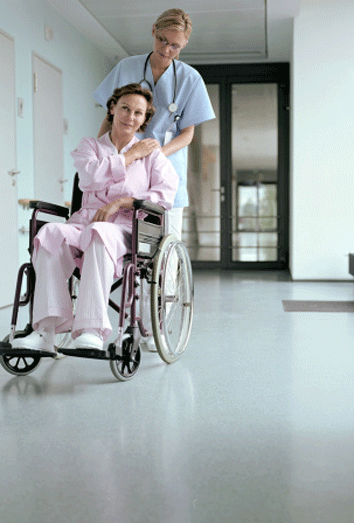Multiple sclerosis is a degenerative disease that affects the brain and spinal cord. It occurs when the myelin that protects neurons is damaged and nerve impulses stop.
Although multiple sclerosis patients can live for years with an acceptable quality of life, it is a disease that gradually paralyzes the patient, so there will come a time when they will no longer be autonomous. But family support has to start the moment multiple sclerosis is diagnosed.
Symptoms of multiple sclerosis
- It is not known what causes multiple sclerosis, as it may be due to a virus or a genetic problem. The symptoms of the disease vary and at first they are temporary ailments that subside after a few days, but as it is a degenerative disease, the deterioration of the patient is inevitable. Muscle problems, such as numbness, spasms, loss of balance, difficulty coordinating movements, and tremors, are common.
- Intestinal problems and urinary incontinence are also common in cases of multiple sclerosis, as well as certain eye problems such as blurred vision, redness and loss of vision. Over time, the patient with multiple sclerosis loses attention span and memory, it becomes more difficult for them to chew and speak, all of which are symptoms that often lead these patients to depression.
- Since sclerosis is an incurable and degenerative disease, the treatment is intended to delay the symptoms and provide the patient with a better quality of life and, in this sense, apart from medical help, the support of family and friends is essential to avoid that the disease paralyzes the life of the patient from the beginning.
How to help someone with multiple sclerosis
- It is not easy to assume a disease like multiple sclerosis, since the result is the loss of physical and mental capacities, for which we will be faced with a totally dependent person. But before that happens and the disease reaches its final consequences, the people who surround the sclerosis patient must act to mitigate the effects of the disease.
- Psychological therapy is essential to accept physical changes and it must be ensured that the patient does not stop their usual activities, even if they have to be adapted to their physical condition. That is why it is also very important to carry out physical exercise, to delay muscle deterioration as much as possible and so that the patient can continue leading his life.
- Over time, the house will have to be adapted for greater safety, especially the bathroom, and avoid any falls that could accelerate the progression of the disease. It is necessary to observe the limitations that arise and adapt to the stage in which the patient is. Physiotherapy will be necessary at all times and the help of a speech therapist is convenient before language difficulties appear. But what must not be forgotten at any time is the power that expressions of affection have on the quality of life of the chronically ill.

